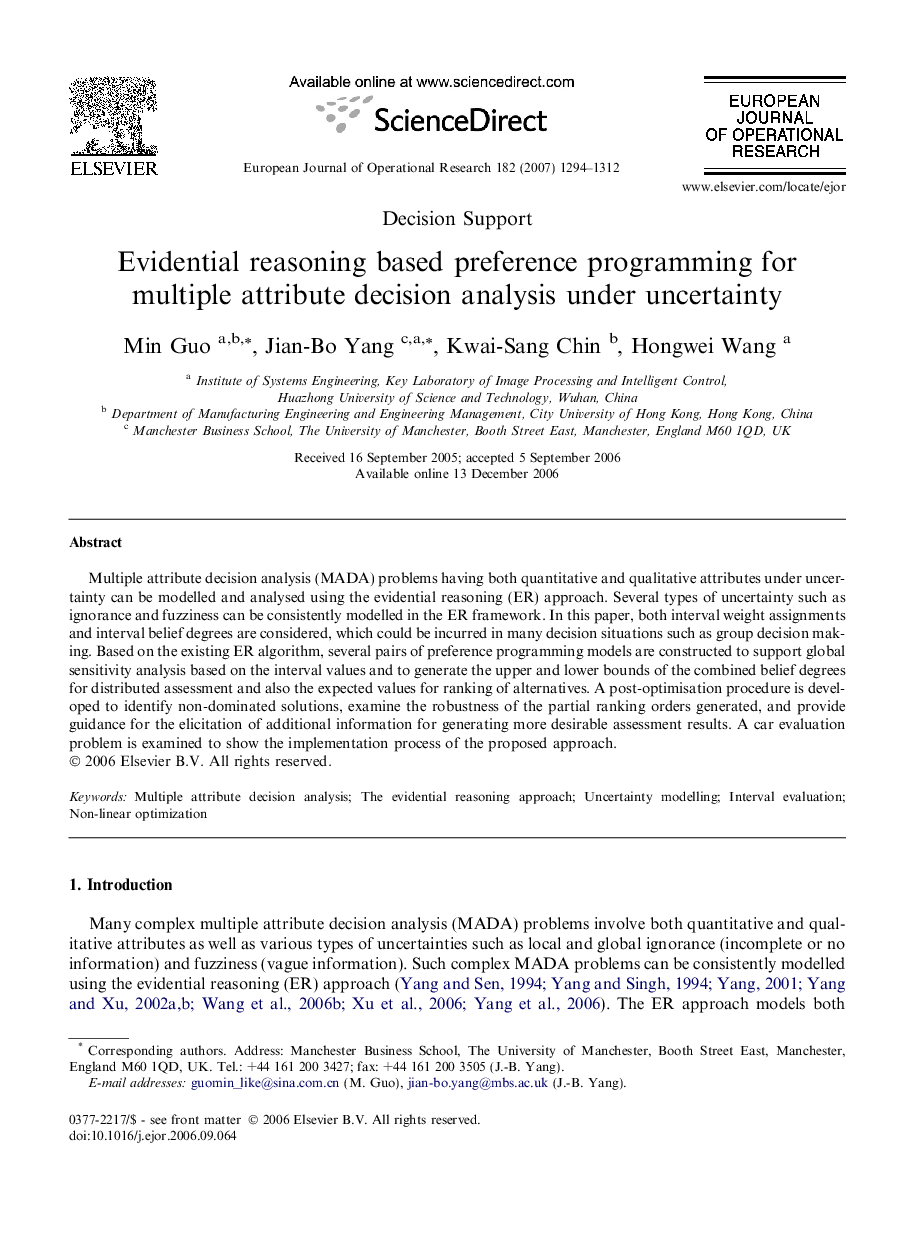| Article ID | Journal | Published Year | Pages | File Type |
|---|---|---|---|---|
| 482995 | European Journal of Operational Research | 2007 | 19 Pages |
Multiple attribute decision analysis (MADA) problems having both quantitative and qualitative attributes under uncertainty can be modelled and analysed using the evidential reasoning (ER) approach. Several types of uncertainty such as ignorance and fuzziness can be consistently modelled in the ER framework. In this paper, both interval weight assignments and interval belief degrees are considered, which could be incurred in many decision situations such as group decision making. Based on the existing ER algorithm, several pairs of preference programming models are constructed to support global sensitivity analysis based on the interval values and to generate the upper and lower bounds of the combined belief degrees for distributed assessment and also the expected values for ranking of alternatives. A post-optimisation procedure is developed to identify non-dominated solutions, examine the robustness of the partial ranking orders generated, and provide guidance for the elicitation of additional information for generating more desirable assessment results. A car evaluation problem is examined to show the implementation process of the proposed approach.
